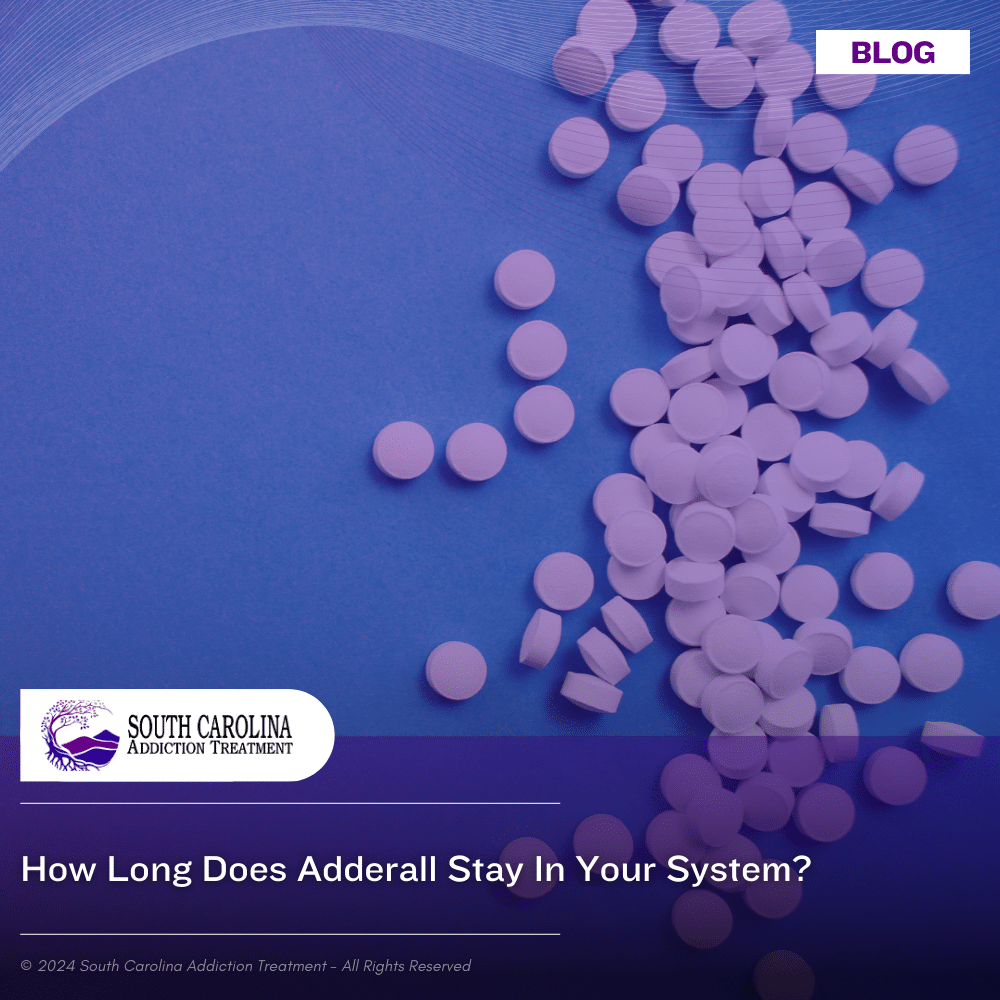How Long Does Adderall Stay in Your System?

Medically Verified: 2/1/24
Medical Reviewer
Chief Editor

All of the information on this page has been reviewed and verified by a certified addiction professional.
Adderall is a prescription stimulant medication that is used to treat attention deficit hyperactivity disorder (ADHD). While this medication is effective in treating the symptoms of ADHD, many people abuse the drug for its energy-increasing and euphoric effects. Adderall abuse often leads to addiction and puts individuals at risk of experiencing life-threatening overdoses.
Adderall abuse is most common among college students who are looking to study for long hours. Up to 20% of college students abuse prescription stimulants like Adderall.[1]
When you take Adderall, the substance leaves your body via urine. However, even after the substance leaves your body, metabolites are left behind in your system that can be detected on a drug test for much longer. Exactly how long Adderall stays in your system will vary based on how much you took, how long you’ve been using Adderall, and other factors.
How Long is Adderall Detected in Your System?
Adderall has a half-life of 9 to 14 hours, which means half of the substance is eliminated from your body at this time. It takes about 72 hours for the substance to be completely removed from your system. Some metabolites will be left behind in your body that is detectable by drug tests for longer than 72 hours.
When you take Adderall, the drug is absorbed in your gastrointestinal tract and then eliminated through your urine. About 20 to 25% of the substance will be converted into the metabolites referred to as hippuric and benzoic acid.[2]
How long Adderall can be detected in your system depends on the type of drug test being used.
Urine
Adderall can be detected by a urinalysis drug test for about 48 to 72 hours after you use the substance. Urine tests tend to show a higher concentration of the drug in your system because Adderall is eliminated through your urine.
Blood
Blood tests are less commonly used because they are invasive and require medical equipment to conduct. However, these tests can detect Adderall in your system for up to 46 hours. Blood tests are the most accurate when they are used shortly after a person abuses a substance.
Saliva
Saliva tests are not as accurate as urine tests, so they are used less often. However, some jobs may require you to pass a saliva test before hiring you. Saliva drug tests can detect Adderall in your system for 20 to 50 hours after your last use.
Hair
Hair tests are the most accurate form of drug testing, however, they can be expensive and timely. Hair tests can detect any substance in your system for up to 90 days, including Adderall.
Factors that Influence How Long Adderall Stays in Your System
While there is a general timeline for how long Adderall stays in your system, certain personal factors may influence this. As a result, the exact timeline for Adderall detection may vary from person to person.
Dose
The higher the dose you take, the more of the substance will be built up in your system, requiring more time for your body to eliminate it completely. People who took a single dose may eliminate Adderall from their bodies at a faster rate. Additionally, there are two forms of Adderall: regular release and extended release. Extended-release will stay in the body longer.
Frequency and Duration of Use
The more often you use Adderall and the longer you have used it, the longer it will stay in your system.
Body Composition
Your body composition may affect how long Adderall remains in your system. Factors like how much you weigh, your body fat, and your height, can influence the detection times of this drug. Typically, this is because larger people require higher doses of medications like Adderall, causing more of the substance to build up in their system.
Metabolism
Everyone’s metabolism works at different speeds. Your activity level, age, gender, and other medications you take can influence how quickly your metabolism works. If you have a slower metabolism, Adderall may be present in your system longer than the general estimates provided.
Age
As you get older, substances may take longer to leave your system due to a variety of reasons, including a decreased liver size, limited kidney functioning, and changes in your body composition. All of these factors can cause Adderall to remain in your system longer than normal.
Organ Health
When you take Adderall, the substance is absorbed by your gastrointestinal tract, metabolized by your liver, and flushed out through your kidneys. If you have damage to certain organs like your liver or kidneys, it may take longer for your body to eliminate Adderall from your system.
Find Help for Adderall Abuse and Addiction Today
Adderall abuse often leads to the development of physical and psychological dependency, otherwise known as addiction. When you are addicted to Adderall, you are at an increased risk of developing physical health conditions, mental health emergencies, and even life-threatening overdoses. To prevent yourself from experiencing the consequences of long-term Adderall abuse, consider attending an addiction treatment program near you.
At South Carolina Addiction Treatment Center, we use a combination of evidence-based behavioral therapies, holistic treatments, and relapse prevention planning to ensure that our patients develop a strong foundation of recovery.
To learn more about our drug and alcohol rehab programs, contact South Carolina Addiction Treatment Center today.
References:

